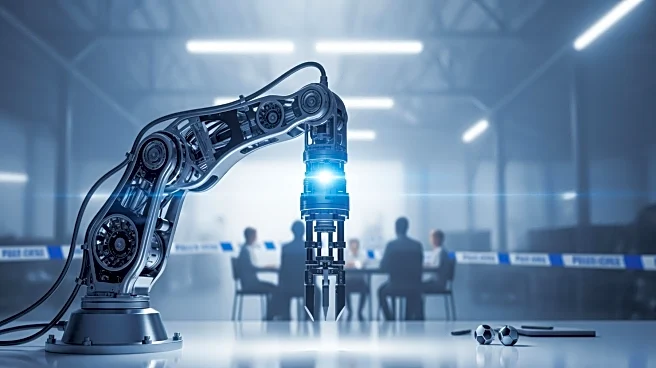What's Happening?
Tesla CEO Elon Musk has expressed his belief that the company's advancements in humanoid robotics and artificial intelligence could significantly transform the American and global economies. During a recent shareholder meeting, Musk highlighted Tesla's
Optimus robot as potentially the 'biggest product of all time,' suggesting it could eliminate poverty. Musk also discussed the possibility of universal basic income becoming more feasible due to these technological advancements, allowing individuals access to desired products and services.
Why It's Important?
Musk's vision for automation and AI has sparked interest among business leaders, including Bill Gates and Jensen Huang, who foresee positive changes in global work and living conditions. However, concerns persist about AI's impact on the workforce, with some advocating for new social safety nets like universal basic income to address potential job displacement. Musk's predictions underscore the need for policy discussions on AI's role in the economy and its implications for employment.
What's Next?
Tesla plans to deploy the Optimus robot internally by 2025, with mass production for other companies expected by 2026. The company is constructing a high-volume production line in Fremont, California, and aims to expand operations at its Texas Gigafactory. These developments could accelerate discussions on AI's economic impact and the potential need for new social policies.
Beyond the Headlines
Musk's comments suggest a future where economic measures might shift from traditional currency to power-based metrics, reflecting the transformative potential of AI and robotics. This shift could redefine economic structures and necessitate new frameworks for wealth distribution.
















